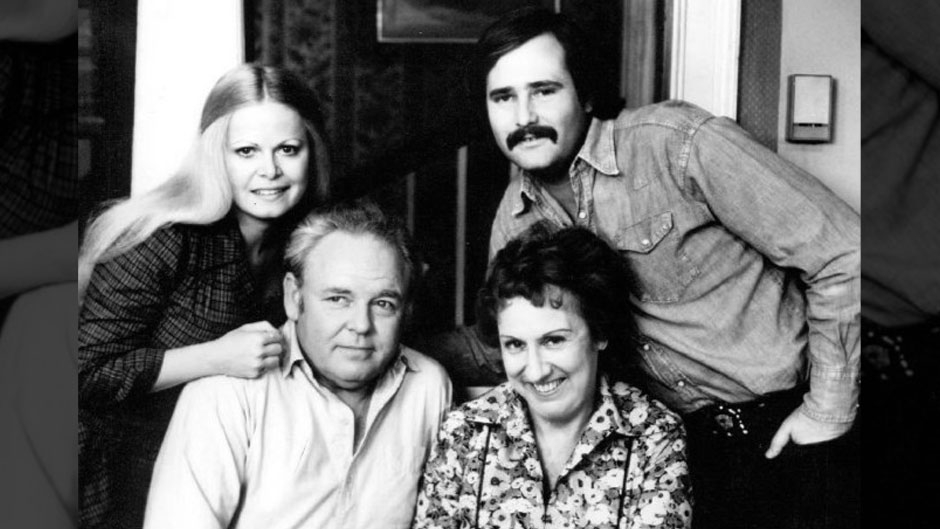Television changed forever on Jan. 12, 1971, with the debut of Norman Lear's groundbreaking series, “All in the Family.” Viewers had never been introduced to a character like Archie Bunker, whose ethnic slurs and Neanderthal social viewpoints might have been commonplace in the blue collar, white male dominated taverns of the Queens (New York) neighborhood where the series was set. However, it was shocking to viewers accustomed to traditional saccharine comedies such as “The Brady Bunch,” “The Partridge Family,” and “My Three Sons.” Archie spared no group—African Americans, Latinos, Italians, and Jews were often the subject of nasty racial stereotypes and epithets. Michael, his son-in-law of Polish heritage, was continually called a "dumb Polock."
The imprudence of discussing politics and religion in open company is legend. Both were fair game to Archie and company. He went with the Biblical version of creation, including a bizarrely unique take on the Garden of Eden. Adam and Eve were running around naked, in Archie World. Then Eve got Adam to take a bite of the apple. Immediately they heard a command from above: "Get your clothes on and get out of here."
In the charged era of Watergate, Archie was a fan and defender of Richard Nixon. "How do they get away with this?" roiled water cooler conversations and op-ed opinion pages? The answer was that many people watched it. “All in the Family” generated huge ratings. Not immediately. It took several months for word of mouth to bring the midseason arrival to the attention of the masses. However, by the summer of 1971, Lear's groundbreaking comedy had soared to the top of the Nielsen ratings, where it stayed for five seasons. The Television Academy took note as “All in the Family” was named best new series of the 1970-71 season as well as outstanding comedy series, the first of four times it was cited as best in class. Even after the sitcom was bumped from Nielsen's top rung by ABC's nostalgia siblings “Happy Days” and “Laverne and Shirley,” it remained one of the top 10 series in the Nielsen ratings through the end of the decade when it was rechristened “Archie Bunker's Place” in recognition of changes that had taken place in the storytelling and casting.
A less cynical reason “All in the Family” was able to "get away with it" was the realization that Lear, an ardent liberal, wasn't celebrating prejudice but was holding it up to a mirror for disapproval. Carroll O'Connor's iconic character, Archie, was an isolated strawman, whose ignorance was illuminated and cold-cocked weekly. His wife, Edith, sympathetically portrayed by Jean Stapleton, might have been "the dingbat" to Archie but she was prejudice-free and irresistibly likeable. With a disapproving glance or exasperated "Oh, Archie," she made it clear she couldn't believe the toxic waste coming out of the mouth of the man she loved. Rob Reiner's Michael, a career student and color blind, left wing, anti-war activist unfailingly out-thought and out-reasoned Archie. Miraculously, the relatively brief time Michael had been with Archie's overly emotional only child Gloria (Sally Struthers) outweighed her formative years under the influence of her father.
It was a pitch perfect ensemble, as each of the core four went on to win multiple Emmys. Michael's next door African American running mate, Lionel Jefferson (Mike Evans), delighted Archie while subtly mocking him by repeatedly vowing, in black dialect remote from his normal speech pattern, to become an "e-lectrical engineer." Lionel became the vehicle to introduce additional tormentors for Archie. Lionel's Uncle Henry (Mel Stewart) challenged Archie on matters of race but he gave way in season three to Lionel's Dad, George, as outspokenly bigoted from the black perspective as Archie was from his point of view. Sensing additional ratings gold Sherman Hemsley's George was spun off in 1975 into his own series as the patriarch of “The Jeffersons.” However, “The Jeffersons” was not the first spinoff of “All in the Family.” Archie's ultra-liberal cousin “Maude” (Bea Arthur), who reveled in humiliating Archie, transitioned into her own show in 1972.
“All in the Family” was as prodigious in siring a couple of generations of offspring as it was in producing ratings and Emmys. Struthers eventually went out on her own in the aptly titled “Gloria.” “The Jeffersons” became the parents of “Checking In.” “Maude” gave birth to “Good Times.” No scripted series has ever been responsible for more second and third generation series. This doesn't include “Archie Bunker's Place,” which was more a continuation than a new entity. “All in the Family” continued to challenge the status quo by delving into previously unexplored subject matter such as Edith being raped in her own home. And when Stapleton felt she had strip-mined every facet of her character, Edith was killed off, a traumatic event for fans of such a beloved character. With ratings, awards, an enduring impact on the culture, there is no argument—by any standard—this is the number one situation comedy of all time.
Fifty years ago, “All in the Family” changed television forever. It brought the “real world” into the content of situation comedies. Prior to “All in the Family,” TV had presented audiences with an idealized, milquetoast version of the family and American society. The social and political changes that were taking place during the 1960s finally made their way into the content of prime-time entertainment programs—led by the overwhelming popularity and success of a situation comedy—"All in the Family.”
Mitchell Shapiro is a professor in the University of Miami School of Communication. This essay was edited from an earlier version which was published in the book, “The Top 100 American Situation Comedies: An Objective Ranking,’’ which was written by Shapiro and co-author Tom Jicha.

